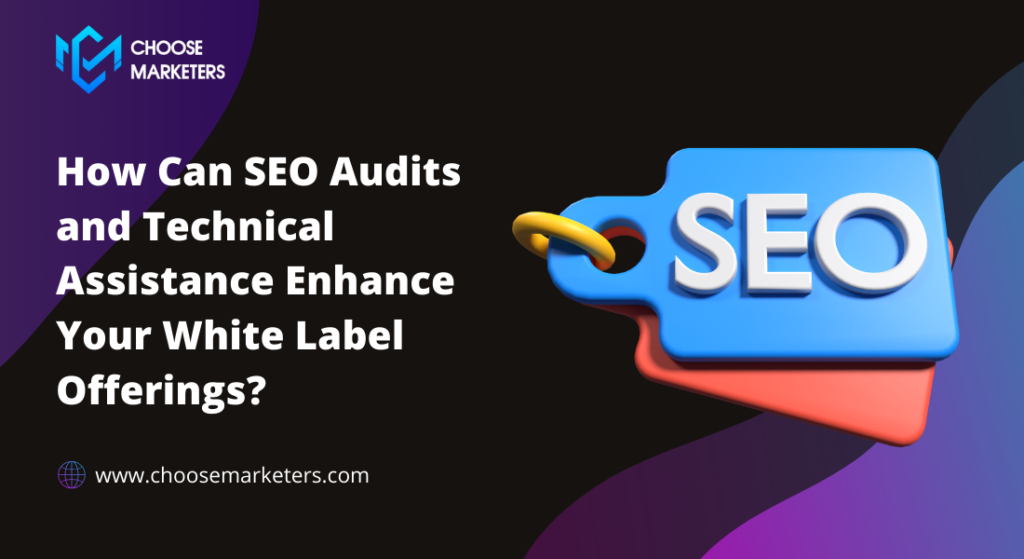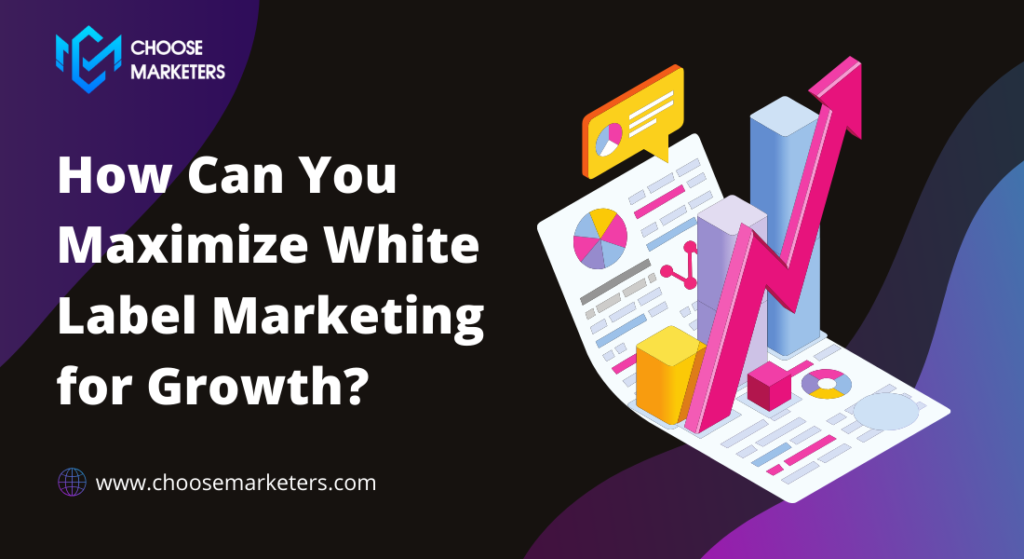

10 Must-Have Features of the Best White Label Digital Marketing Solutions for Your Business
What Is White Label Digital Marketing and Why Is It Essential for Agencies?
White label digital marketing involves an external agency providing services that other companies can rebrand and offer as their own. This model helps digital marketing firms expand their services without developing new capabilities or hiring additional staff. Agencies can maintain their own branding throughout the process. Such partnerships are pivotal for agencies aiming to scale operations, diversify offerings, or stay competitive without increasing overhead.
Components of White Label Digital Marketing
1.Core Services Offered: White label digital marketing agencies often offer various services essential for building strong marketing campaigns. These services typically include:
- SEO (Search Engine Optimization): Comprehensive SEO audits, keyword strategy, on-site and off-site optimizations, and backlink profile management
- PPC Management: Expertise in running pay-per-click campaigns across multiple platforms, including Google Ads, Bing, and social media networks
- Content Marketing: Developing high-quality, branded content for blogs, websites, and social channels that drive engagement and improve search visibility
- Social Media Management: Managing social media profiles and executing targeted campaigns to build brand awareness and community interaction.
2. The Mechanics of White Label Partnerships: In a white label partnership, the agency providing the services operates behind the scenes as a third-party partner. The contracting agency maintains client relationships and delivers the rebranded services, creating a seamless experience for their customers. This model facilitates faster service delivery, as the white label provider typically comes equipped with specialized tools, software, and an experienced team
Why Should Your Agency Choose a White Label Partner?
Choosing a white label partner can transform digital marketing agencies. It helps them expand service offerings, stay competitive, and boost profitability. This model allows agencies to offer specialized services under their brand. They can do this without facing the challenges of building new capabilities in-house. Here’s why working with a white label partner is advantageous for your agency:
Access to Specialized Expertise
White label partners are teams skilled in specific areas of digital marketing. These include SEO, PPC, content creation, and social media management. This allows your agency to offer expert-level services without investing in training or recruitment. Their knowledge ensures campaigns are executed with precision and align with the latest industry standards and best practices.
Cost Efficiency and Operational Savings
Building and maintaining a marketing team requires significant investment in salaries, training, tools, and software. White label partnerships provide an affordable alternative. Agencies only pay for the services they need, either on a per-project or subscription basis. This approach reduces overhead costs while maintaining the quality of service that clients expect.
Scalability Without Added Strain
One of the most compelling reasons to partner with a white label provider is the ease of scaling operations. By outsourcing certain tasks, your agency can take on more clients and larger projects without overwhelming your existing workforce. This scalability allows you to expand your client base and revenue stream. It eliminates the time and effort required for traditional growth.
Faster Time-to-Market
Developing new capabilities or services in-house can delay time-to-market, impacting your agency’s ability to meet client demands quickly. White label partners come equipped with established processes, tools, and experienced staff. This setup allows agencies to offer new services quickly. It ensures they can meet client needs faster and capitalize on market opportunities.
What Are the Top Services Offered by White Label Agencies?
White label marketing agencies offer services that help businesses expand their offerings. This allows companies to grow without developing in-house expertise. These services are particularly valuable for digital marketing firms aiming to present themselves as full-service providers while maintaining brand integrity. Here’s an in-depth look at the four most impactful services commonly offered by white label companies: SEO, content marketing, social media marketing, and link building marketing.
SEO (Search Engine Optimization)
SEO is at the forefront of white label services due to its vital role in digital visibility. White label agencies specializing in SEO offer comprehensive packages that can include.
Content Marketing
Effective content is the backbone of any digital strategy. White label agencies often offer comprehensive content marketing services. These include writing and producing blogs, articles, white papers, eBooks, and other content tailored to client needs and industry demands. They also craft strategies based on audience analysis, SEO research, and competitive insights. This ensures content aligns with business objectives. Additionally, they design eye-catching graphics and interactive content to enhance audience engagement.
Social Media Marketing
Social media has become an essential part of digital presence, and white label agencies provide end-to-end management of this platform. Services include daily account management, such as post scheduling, audience interaction, and community building. It also involves developing posts, stories, and video content that align with the client’s brand voice and marketing goals. Additionally, running targeted social media advertising campaigns on platforms like Facebook, Instagram, LinkedIn, and Twitter ensures optimal ROI.
Link Building Marketing
Link building remains a critical aspect of SEO. It helps establish a site’s credibility and authority in the eyes of search engines. White label agencies often handle this by connecting with authoritative websites to acquire high-quality backlinks. They also create and place content on third-party sites to secure valuable inbound links. Additionally, they analyze client competitors to identify backlink opportunities and refine strategies.
What Are Common Challenges in White Label Partnerships and How Can You Overcome Them?
Partnering with a white label digital marketing provider can bring substantial benefits to agencies, but it’s not without its challenges. Understanding these potential pitfalls and having strategies in place to address them is essential for a successful partnership. Below, we explore the most common challenges associated with white label partnerships and how agencies can effectively navigate them.
1. Maintaining Consistent Communication
Challenge: One of the main hurdles in white label partnerships is ensuring clear and continuous communication between your agency and the white label provider. Gaps in communication can lead to misunderstandings, misaligned expectations, and delays, impacting client satisfaction and project outcomes.
Solution: To overcome this, establish regular check-ins and a structured communication plan that includes updates via calls, video meetings, and emails. Use collaborative project management tools like Trello, Asana, or Slack to track project progress and maintain transparency. Having a dedicated account manager within the white label agency can also facilitate better communication
2. Ensuring Quality Control
Challenge: When services are outsourced to a third-party provider, maintaining consistent quality can be difficult. Agencies may find that the deliverables do not always meet their standards or align with their client’s branding and voice
Solution: Implement a robust quality control process by reviewing all deliverables before they are shared with clients. Set clear quality guidelines and expectations with the white label partner at the outset of the partnership. Regular feedback loops and constructive critique can help refine processes and enhance service quality over time. Additionally, choose a partner with a proven track record of delivering high-quality work
3. Aligning Business Goals and Values
Challenge: Differences in business culture and goals between your agency and the white label provider can create friction. This misalignment may manifest in diverging priorities, conflicting work ethics, or varying standards of service
Solution: To prevent this, thoroughly vet potential white label partners by reviewing their past work, client testimonials, and overall approach to business. During initial discussions, confirm that your agency’s goals and values align with those of the provider. A trial project may also help assess compatibility before committing to a long-term partnership
4. Managing Client Expectations
Challenge: Agencies that rely on white label services may face difficulties in managing client expectations, especially if the delivery timelines or scope of work need adjustments due to the provider’s processes
Solution: Set realistic client expectations from the start by clearly communicating timelines, project phases, and any potential challenges. Maintain a buffer period in deadlines to account for unforeseen delays. Having a flexible approach to project management and educating clients on potential variables will minimize dissatisfaction if adjustments become necessary
5. Data Security and Confidentiality Concerns
Challenge: Data security and client confidentiality are critical issues, particularly when working with third-party providers. A lapse in security can damage client trust and impact your agency’s reputation
Solution: Ensure that the white label agency adheres to stringent data protection policies and complies with industry standards for confidentiality and cybersecurity. Signing comprehensive non-disclosure agreements (NDAs) and verifying the security measures the provider has in place will protect sensitive client information.
How Can SEO Audits and Technical Assistance Enhance Your White Label Offerings?

SEO audits and technical assistance are crucial elements that white label agencies can offer to improve client website performance and ensure long-term success in search engine rankings. Understanding these services and how they contribute to digital marketing success is essential for agencies aiming to provide comprehensive solutions. Below, we delve into the significance of SEO audits and technical assistance and why they should be a part of your white label strategy.
1. Comprehensive Website Health Assessment
An SEO audit provides a detailed evaluation of a website’s technical framework, identifying issues that can hinder search engine performance. This includes analyzing elements like page load speed, mobile responsiveness, URL structure, site architecture, and broken links. Conducting thorough SEO audits uncovers critical issues that can negatively impact search rankings. By fixing these issues, your clients can improve website usability and indexing. This leads to better search visibility and an improved user experience.
2. Technical SEO Improvements
Technical SEO focuses on optimizing the backend elements of a website to enhance its search engine friendliness. This can include aspects like:
- Crawling and Indexing: Ensuring that search engines can crawl and index the site efficiently.
- XML Sitemaps and Robots.txt: Creating and optimizing these files to guide search engines through site content.
- Schema Markup: Implementing structured data to enhance search visibility with rich snippets
Technical SEO improvements are essential for maintaining a well-optimized website that meets current search engine standards. Addressing these technical aspects enables better crawling and indexing by search engines like Google, directly influencing search rankings and discoverability.
3. Error Detection and Resolution
White label agencies providing technical assistance help identify and fix errors that could compromise website functionality. These include broken links, duplicate content, and security vulnerabilities. Quick detection and resolution minimize the risk of penalties from search engines and improve site security. This is particularly important for agencies serving clients in highly competitive markets where SEO errors can be costly.
4. Mobile Optimization
With mobile-first indexing, search engines prioritize the mobile version of websites when determining rankings. A technical SEO audit ensures websites are optimized for mobile devices. This offers seamless experiences across different screen sizes. Ensuring a website is mobile-friendly improves user engagement and reduces bounce rates. White label partners who provide mobile optimization can significantly boost a client’s ability to compete in search results.
5. Site Speed and Performance Enhancements
Site speed is a significant ranking factor. SEO audits evaluate and recommend improvements for website speed, such as compressing images, leveraging browser caching, and optimizing code.Faster-loading pages lead to better user experiences, which can reduce bounce rates and improve conversion rates. Agencies that partner with white label providers offering speed optimization can deliver measurable results that impact client satisfaction and retention.
What Are the Best Tips for Vetting a White Label Marketing Agency?
Selecting the right white label marketing partner is critical for ensuring high-quality service delivery and maintaining your agency’s reputation. Proper vetting can help mitigate risks and set the foundation for a successful long-term relationship. Here are expert tips for thoroughly vetting a white label marketing agency.
Examine Their Track Record and Case Studies
Review the white label agency’s past work through case studies and client success stories. Look for specific examples that demonstrate their expertise in delivering services such as SEO, content marketing, social media management, and link building. Moreover, a proven track record provides concrete evidence of the agency’s ability to achieve tangible results. This can give you confidence in their experience and competency, ensuring that their services align with your quality standards.
Assess Industry Experience and Specialization
Choose an agency that has substantial experience and specializes in the services you plan to offer. Whether it’s SEO audits, content creation, or social media campaigns, make sure their team has in-depth knowledge of the specific areas.A specialized agency will have refined processes and a deeper understanding of current trends and best practices. This expertise translates into more effective services that meet your clients’ expectations
Evaluate Communication and Responsiveness
Test how responsive and communicative the agency is during initial interactions. Pay attention to their willingness to provide detailed answers, timelines, and clarification on processes.Clear and consistent communication is vital for a seamless partnership. An agency that values prompt and transparent communication will help you stay informed about project progress and address any issues before they escalate
How Can You Scale Your Agency with White Label Solutions?
Scaling a digital marketing agency can be a complex endeavor. Moreover, it becomes particularly challenging when trying to manage increased client demands while maintaining service quality. White label solutions offer a practical way for agencies to expand their service offerings, enhance efficiency, and grow their client base without the need to invest heavily in in-house resources. Here are several key strategies for leveraging white label solutions to scale your agency effectively.
Expanding Service Offerings
White label solutions allow your agency to offer a wider range of services, including SEO, content marketing, social media management, and link building, without needing to hire specialized staff for each service.By broadening your service portfolio, you can attract a more diverse client base and meet varied marketing needs. This not only boosts revenue potential but also positions your agency as a one-stop shop for all digital marketing solutions.
Focusing on Core Competencies
Partnering with white label agencies allows your team to concentrate on your core competencies—strategic planning, client relationships, and creative direction—while delegating execution to specialized partners.By outsourcing execution to a trusted partner, your agency can enhance productivity and effectiveness. This enables your team to deliver more value to clients while ensuring that high-quality work is consistently produced
Reducing Overhead Costs
White label solutions help eliminate the need for hiring additional staff, training, and investing in new technologies. As a result, they significantly reduce overhead costs. Consequently, lower operating costs increase your agency’s profitability and provide greater flexibility in pricing strategies. This can lead to more competitive service offerings and the ability to invest in marketing and client acquisition efforts.
Enhancing Flexibility and Scalability
White label partners can quickly scale their services based on your agency’s demands, whether you’re taking on new clients or managing seasonal fluctuations in workload. Furthermore, this flexibility allows your agency to adapt to changing market conditions, without the risks associated with hiring and training new staff. As your client base grows, your white label partner can ramp up resources to meet demand, ensuring you never compromise on service quality.
Improving Client Retention and Satisfaction
With the ability to offer comprehensive and high-quality services, agencies using white label solutions can improve client satisfaction and retention rates. Happy clients are more likely to refer others, helping to grow your business organically.Client retention is often more cost-effective than acquiring new clients. By consistently delivering exceptional services through white label partnerships, your agency can build long-lasting relationships and enhance its reputation in the market.
How Can You Maximize White Label Marketing for Growth?

Maximizing the potential of white label marketing is essential for agencies looking to expand their offerings, increase revenue, and drive sustainable growth. By leveraging the unique advantages of white label solutions, agencies can enhance their service delivery. Furthermore, they can maintain focus on core business operations. Here are several strategies to effectively utilize white label marketing for growth.
Identify Niche Markets
One of the first steps in maximizing white label marketing is to identify and target niche markets where your agency can excel. By focusing on specific industries or client segments, you can tailor your offerings to meet unique needs.Targeting niche markets allows your agency to differentiate itself from competitors, build specialized expertise, and develop stronger client relationships. A focused approach can lead to higher conversion rates and more loyal customers.
Leverage High-Quality Content
Content marketing is a critical component of any digital strategy. White label partners can provide high-quality content tailored to your clients’ industries, which, in turn, enhances their brand authority and online visibility. Moreover, quality content not only improves SEO rankings but also engages audiences effectively, ultimately driving conversions. By offering compelling content through white label solutions, your agency can enhance its reputation and value proposition.
Utilize Data Analytics for Performance Measurement
Effective use of data analytics is vital for understanding the performance of marketing campaigns. White label agencies can offer advanced analytics tools that provide insights into user behavior, campaign effectiveness, and ROI.By leveraging data analytics, your agency can make informed decisions, optimize campaigns in real time, and present measurable results to clients. This data-driven approach enhances credibility and fosters long-term client relationships.
Streamline Processes and Workflows
White label solutions allow agencies to streamline their operational processes. Implementing standardized workflows for project management, client communication, and service delivery ensures consistency and efficiency.Streamlined processes reduce operational overhead and improve service delivery times, enabling your agency to handle more clients effectively. Efficient workflows contribute to enhanced productivity and profitability.
Build Strong Client Relationships
Personalizing client interactions and delivering exceptional customer service is crucial. White label partners can support your agency in managing these relationships by providing reliable and consistent service delivery.Strong client relationships lead to higher retention rates and increased referrals. Satisfied clients are more likely to engage in upsell opportunities and recommend your agency to others, fueling growth.
Commonly Asked Questions ( FAQS ) on Best White Label Digital Marketing?
1. What Is White Label Digital Marketing?
White label digital marketing refers to services that are produced by one company (the provider) and rebranded by another company (the reseller) as their own. For example, this arrangement allows agencies to offer a broader range of services, such as SEO, content marketing, and social media management, without having to develop these capabilities in-house. Additionally, this model enables agencies to focus on client relationships and strategy while relying on specialized partners to execute the work. As a result, service delivery and efficiency are significantly enhanced.
2. What Are the Benefits of Using White Label Solutions?
The benefits of white label solutions include expanded service offerings, reduced operational costs, improved focus on core competencies, enhanced scalability, and increased client retention.By outsourcing specialized services, agencies can maintain high-quality service delivery without the need to hire additional staff.This flexibility allows agencies to adapt quickly to market changes and client needs while leveraging the expertise of established providers.
3. How Do I Choose the Right White Label Marketing Partner?
To choose the right white label partner, agencies should assess their potential partners based on their track record, industry expertise, communication practices, and ability to deliver customized solutions. It’s also crucial to review client testimonials and case studies to gauge their success.A well-matched partner can significantly impact the quality of service you provide to your clients, affecting overall satisfaction and retention.
4. What Services Can Be Offered Through White Label Marketing?
Agencies can offer a variety of services through white label marketing, including SEO, content marketing, social media management, PPC advertising, email marketing, and link building.The specific services available depend on the white label partner’s expertise.Offering a comprehensive range of services enables agencies to meet diverse client needs and positions them as full-service providers in the digital marketing landscape.
5. What Are the Common Challenges of White Label Marketing?
Common challenges include ensuring quality control, maintaining effective communication with the white label partner, and managing client expectations. It’s crucial to have robust processes in place for quality assurance and clear channels for communication to mitigate these challenges.By proactively addressing these challenges, agencies can enhance collaboration with their partners and improve overall service delivery

